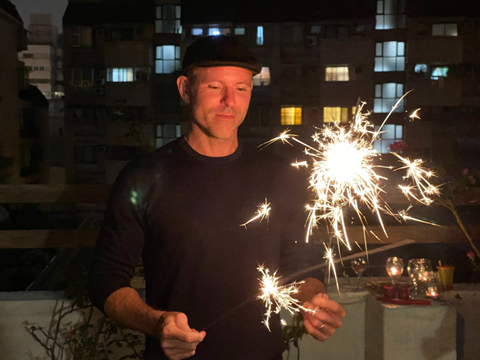
In this instalment of our Rapid Interview series, Ecoshell founder Andrew Bliss explains the company’s eggshell-based solution and his ideas around plastic and carbon reduction.
Your elevator pitch: introduce and sell us your company in no more than 280 characters.
We proudly offer the only patented eggshell-based solution in the world that is also fully eco-certified as a carbon and plastic reducer and as being recyclable, helping brands reduce plastic by up to 50% and carbon up to 70%, taking into account the product’s end of life.
Where are your company’s locations? Are there any specific challenges or advantages relating to your geographical location that you could tell us about?
Our HQ is in Covington, KY (just across the river from Cincinnati, OH) which offers an unmatched regional logistics infrastructure. We also have affiliated offices in Fredericton, NB and Tainan, Taiwan. All wonderful places, but just wish they had more direct flights to Europe!
Tell us a surprising fact about the market you work in.
All of our eggshells come from one very busy chicken in our office! Actually, we clean up food production and agricultural waste, partnering with sources across Asia. Another surprising thing is that our eggshell material can make 99.9% antibacterial products.
At Packaging Europe we like to watch trends and areas of innovation as they evolve. Can you tell us something we might not be aware of that is driving technology in your sphere?
Consumers are becoming aware of the greenwashing done by many brands, which claim to have environmentally friendly products or packaging, but really produce very little – if any – eco-benefit. Overall plastic reduction is emerging as the best way make real and significant reduction in carbon.
What would you say is the biggest common misconception that you encounter in your business?
Some fear that people could have an allergic reaction to our material since it is derived from eggs. Our patented process, however, includes heating to such a high degree that all proteins are burned off. This process also gives the particles their porous structure, allowing for exceptional bonds.
If the wider packaging industry could be transformed in some way, what kind of change would you like to see?
In sustainability, we would love to see a focus on true plastic reduction and carbon reduction that takes into account the product’s end of life. In general, we would love to see more affordable ways for brands to lower their carbon footprints.
…and how do you envisage your company changing the industry in the coming years?
We will lead the way in plastic reduction with a sustainable, bio-product that is also affordable and easily integrated. We will also develop new products using our material along with PCR or ocean bound plastics, as well as with other natural materials like sunflower seeds as a colouring agent.
If you liked this story, you might also enjoy:
How are the top brands progressing on packaging sustainability?
Sustainable Innovation Report 2024: Current trends and future priorities
Reuse vs. single use – which is better for the environment?
The ultimate guide to global plastic sustainability regulation














No comments yet